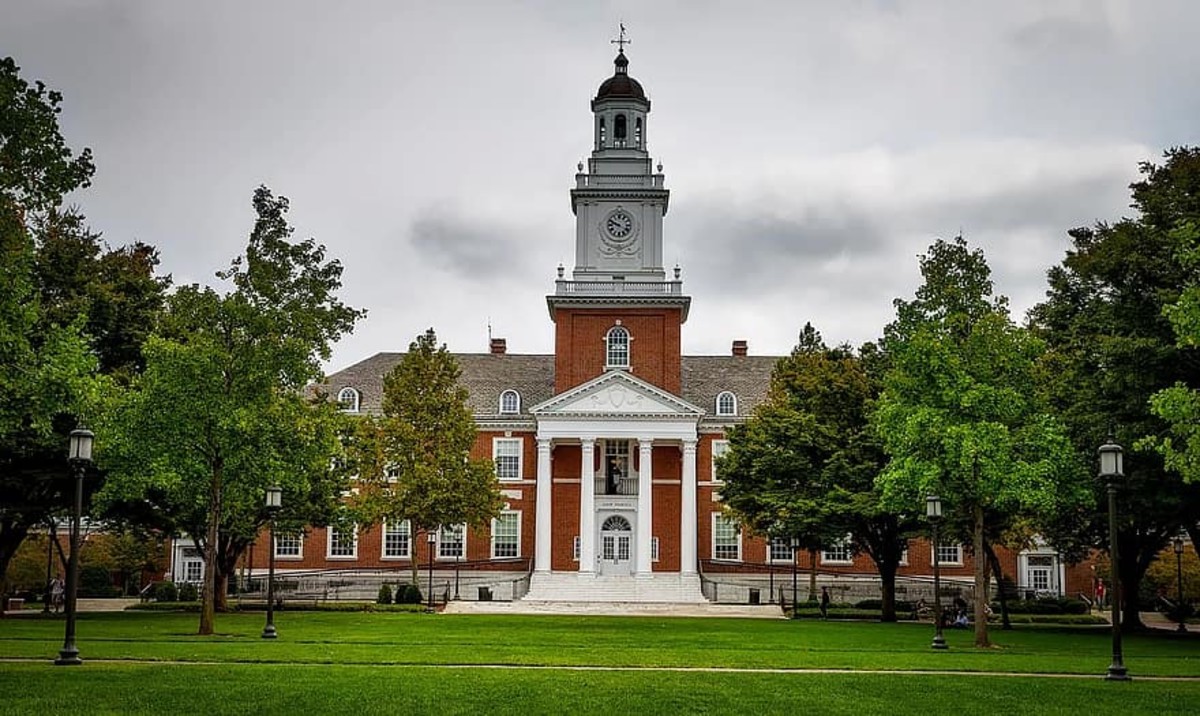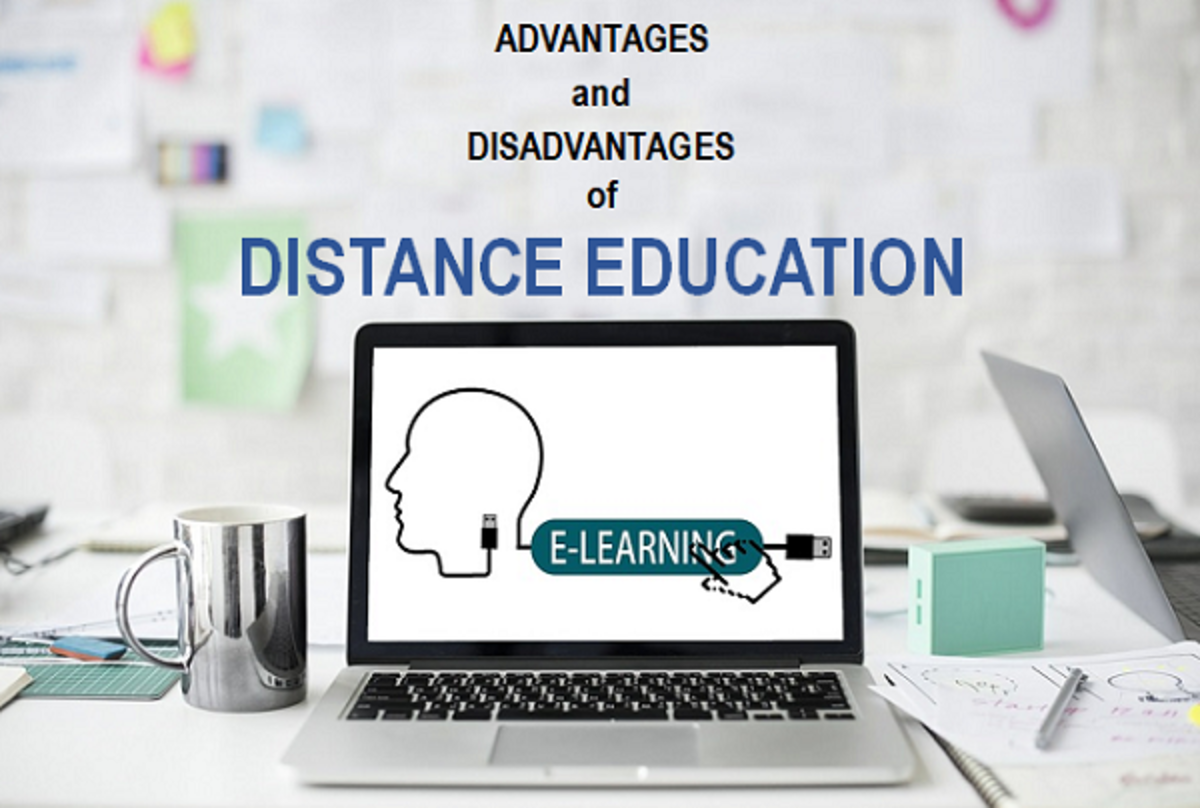Full-Ride College and University Scholarships - Great Idea or Bad Idea?

Genesis of this Article - Perspicacious
Introduction ~~~ Recently, one of our fellow HP authors, Perspicacious, asked me some very thought-provoking questions. I have strong opinions about the questions he posed and my lengthy response is below. However, some declarations and admissions are in order. I have spent the last 18 years of my life teaching History, Interdisciplinary Studies, and Geography at several Georgia universities and colleges. Prior to that I spent twelve years earning Bachelor’s, Master’s, and Doctoral degrees.
At the same time I was busily raising three teenage sons, so I was concerned about and involved in their schooling, primary grades through college. So in other words, I have been either in the education system as a student, working with my sons who were students, or working with students in higher education, as a professor for the past thirty years.
Needless to say, I have been paying attention to what works and what doesn’t work in higher education and I have developed some clear principles and ideas about what we can and should do to improve education and lifelong learning in America. Perspicacious’ questions tapped into that reservoir of experience and knowledge.
Perspicacious ~~
What do you think of nationwide exams for the award of full-ride college scholarships?
Would that encourage more attention to academic excellence and preparation for college-level studies as it does in China and Japan?

A University Professor's Educated Response
Answer ~~~ I strongly support more funds for additional scholarships, both need based and merit based, but I have qualms about almost any program that is done on a national scale when it could be done at the state level, or state when it could be administered on a county by county basis. Generally speaking (there are occasional exceptions), the larger a program is, the higher a percentage of overall funds get absorbed in the layers and layers of administration and implementation.
So, I much prefer locally administered funds and programs. In the case of public or federal scholarship money, programs administered by each state are preferable. There would probably also be scholarship programs administered by private institutions of higher learning based on private donor contributions and support.
To get to the crux of my response, having worked at both public (4 years) and private (14 years) universities, I do not believe anyone should ever be given a “full-ride college scholarship.” I don’t care how smart you are, what your GPA is, how many sports you play, or how many powerful people your parents know, no full-ride scholarships!
There are several reasons I feel so strongly about this: To begin, I think in 90% of life' situations, we appreciate more, work harder at, and take better care of what we have to pay for or invest in ourselves. How many times have we heard of a son who blows through a generous inheritance, (500,000.00), from his parents and is broke by age 30; but the young man (or woman) who starts with next to nothing and works like crazy to build a small business or start a new company that is valued at 500,000 by age thirty is an entirely different person. With respect to Higher Education, I want to encourage the latter and not facilitate the former.

Mounting Debt - Heavy Work Loads - Exhausted Students
Do I think students should be graduating with 30, 60, 90 thousand dollars in debt. Not at all, I think that is insane and a terrible burden to start life with. Students need to get over this “I deserve to go to a famous, name recognition college with a great football team, and live on campus so I can waste my time and act like an idiot in the dorm.” Parents need to get over the idea that they “should” send their child, who is after all eighteen or nineteen – probably the high tide of poor judgment in human beings, to a ferociously expensive Ivy League school where they will have virtually no supervision, guidance, or rules.”
This is a recipe for disaster for many (not all, of course) students and for many families’ finances. There are so many other choices that don’t involve playing at and then dropping out of school or bankrupting one’s parents or oneself by paying for over-priced tuition. There are hundreds of reasonably priced state and community colleges where one can get an excellent education. Live at home, attend a state or community college, begin your life without a crushing load of debt!
I also think that all students should work a little (10-15 hours a week) even if their parents can foot the whole bill – again we value most what we worked hardest to achieve. Now I oppose what many students do (to avoid incurring too much college debt), working 30-50 hours a week and going to school full-time. That is such a counter-productive approach. Students who do that do not enjoy college or learning; they lack the time to delve into subjects or issues that might be of lifelong interest to them.
They often select the easiest majors and take classes requiring minimal reading and writing; they tend to do as little work as possible to get the grades needed to graduate. They are exhausted, frustrated, cranky, and tend to get sick quite often. I know…my classes are full of them. What student really cares about the joys of learning, or the mysteries of the universe, or the structure of language, or can discover their hidden intellectual passion when they are treading water as fast as they can just to keep their head above the water. It should not be like this.

Unequal Scholarhip Opportunities
If you must work full-time, and sometimes it is a necessity, then it is wise to accept that it may take 6-7 years to complete a 4 year degree, and that is perfectly OK. In fact it is both advisable and admirable. There is considerable evidence that people who work full-time and go to school full-time get seriously ill more often, drop out of college more often, and sadly, have a higher rate of divorce if married. These are very serious consequences to suffer to accomplish in four years what could be done with fewer negative complications in six years.
It took me six years to complete my Bachelor’s degree; I was in my early thirties, worked about ten hours a week and was raising three boys. After I got my BA, I went on for an MA and PhD at a “top 25” university; proof that going slow and being an excellent student pays off - if I had rushed, cut corners, settled for easier classes and lower grades, I would never have been accepted at Emory University. By the way, I had a good scholarship, but also incurred fifteen thousand dollars in debt, which I paid off after working full time for ten years.
So what would I recommend? Well here is what I constantly promote and argue for at the Liberal Arts University where I work. University administrations need to shift some serious scholarship money away from athletics and to academics; in conjunction with the faculty and academic deans, they also need to lower the SAT and GPA requirements for students applying for academic scholarships.
Many average C+ or B- students come into their own in college, discover a discipline they love and end up being outstanding students. For those of you having a hard time with this suggestion, keep in mind that almost all team athletes receive generous scholarships. These scholarships go to many athletes who barely maintained passing grades in high school. So by way of comparison a C- average athletes keeps a scholarship for five years and no one expects then to graduate in four years. Hardly seems fair to be so generous with athletes and so stingy with everyone else.
However, at my university there is a small pool of money available for academic scholarships (chemistry, biology, botany, math, English, political science, history, sociology, religion) and this money is divided among a small group of applicants who must have a 3.5 GPA (out of 4.0), a high SAT score, and they must take an essay exam administered by the discipline faculty. Just in case you were wondering, no, athletes do not have to take any essay exam; as long as they played a sport in high school, they automatically get scholarship money.

So the Solution to the Problem Is ?
This may seem far afield from the questions, but here is what we need to do:
(1) If our colleges and universities are to fulfill their intended purpose, which is education after all – not training young people to play a sport, we must offer more scholarships and support to students with academic majors, especially in math and the sciences, especially if we hope to regain our competitive global economic edge.
(2) Community Colleges and State Universities should offer institutional scholarships that cover 25% to 50% of the tuition (Pell Grants are crucial) for many more capable students, as opposed to full-ride scholarship for a small handful of students. When you have five or six bright, interested students in a classroom, instead of one really bright full-ride scholarship student, the entire class becomes energized, learns more, and performs better.
(3) Need should be considered as well as merit. A lot of full-ride scholarship students come from homes where the family can afford the cost of college tuition. Then there are lots of very good students whose families are lower middle and lower income and cannot possibly afford to pay for tuition, and who need some help to get a college education.
(4) We need to strengthen and properly market our state and community colleges. We need to make sure that parents and students realize what an incredible value a degree from a state school is, and they need better information about which majors and degrees lead to which kinds of jobs. Additional job preparation and placement assistance is needed, although many institutions already do a good job at this.
(5) We need to encourage some students to pursue training and certification in a number of fields that lead to decent incomes – not everyone can or should go to college. We need to restructure and rebuild our economy of course to do this – but there is good money in many fields that don’t require a four year degree: carpentry, electrician, plumbing, etc. We are making a big mistake affecting both our children and our economy when we downplay or ignore the importance and necessity of these occupations.
~~~~~~~~~~~~~~~~~~~~~~~~~~~~~~~~~~~~~~~~~~~~~~~~~~~~~~~~~~~~~~~
Finally, thinking about China and Japan…I know more about Japan, less about the Chinese educational system. Japanese universities emphasize academics, the arts, music; they are not particularly worried about fielding football, basketball, and baseball teams. They prepare their students for a very competitive world economy. So, they are doing some things exactly right.
However, Japan has an extremely high late teens - early twenties suicide rate – which is strongly correlated with academic achievement or failure. So, no, I don’t think we need to emulate the Japanese approach, which is too intense and too driven. But we could and should do what both China and Japan do, and that is place a much higher social and economic value on traditional academic disciplines and degrees, and provide additional financial support. For a system to study and perhaps emulate, I would look at the German system of higher education, but that is another hub. :)
Sharing is Nice - ThePianoGuys - Happy Together
Universities, Colleges, Higher Education
- Why Do Professors Teach the Way They Do? Why Do I ...
How should we teach? Why do we teach? What should we focus on in high school and college? What skills do we consider important? What objectives do we have in mind as we prepare to go into the classroom? Money is not the answer, although it helps. The - 10 Common Problems Students Face During College
Although college can be a very exciting time for many, it is also a very stressful time as students learn to balance learning and real life responsibilities. This article identifies 10 common problems facing college students and offers tips and advic - College ?? Getting Great Recommendation Letters fr...
Completing applications for college and university is important Good recommendations from your teachers and professors can mean the difference between getting accepted by your last choice or your first choice institution. Where do you really want to - Travel, Volunteer and Work Abroad Ideas for Recent C...
You've graduated college...congratulations! Now what? For many recent college graduates, this could be the best time to travel, volunteer or work abroad. Why not delay the corporate world and spend some time for yourself? After all, you deserve it. - The University Promotion Process
People outside of an academic setting often have questions and doubts about the meaning and utility of Tenure. And what is a university promotion process like? How and when do college faculty get promoted in rank? What is rank? The process leading to - Tips and How to Find the Top 10 Best Summer Jobs For...
High school and college students - even grad students - can start with a summer job or business internship and become a successful business owner! One young man began in Jeffersonville, Indiana as a dishwasher in a pizza joint and became a natonal re - Just How Rich Are Those College and University Profe...
The cost of a college education has been rising. What about the generous salaries earned by professors? Are their salaries unreasonable? What kind of salaries do other professionals with less education and training earn? So, what are some of the caus









